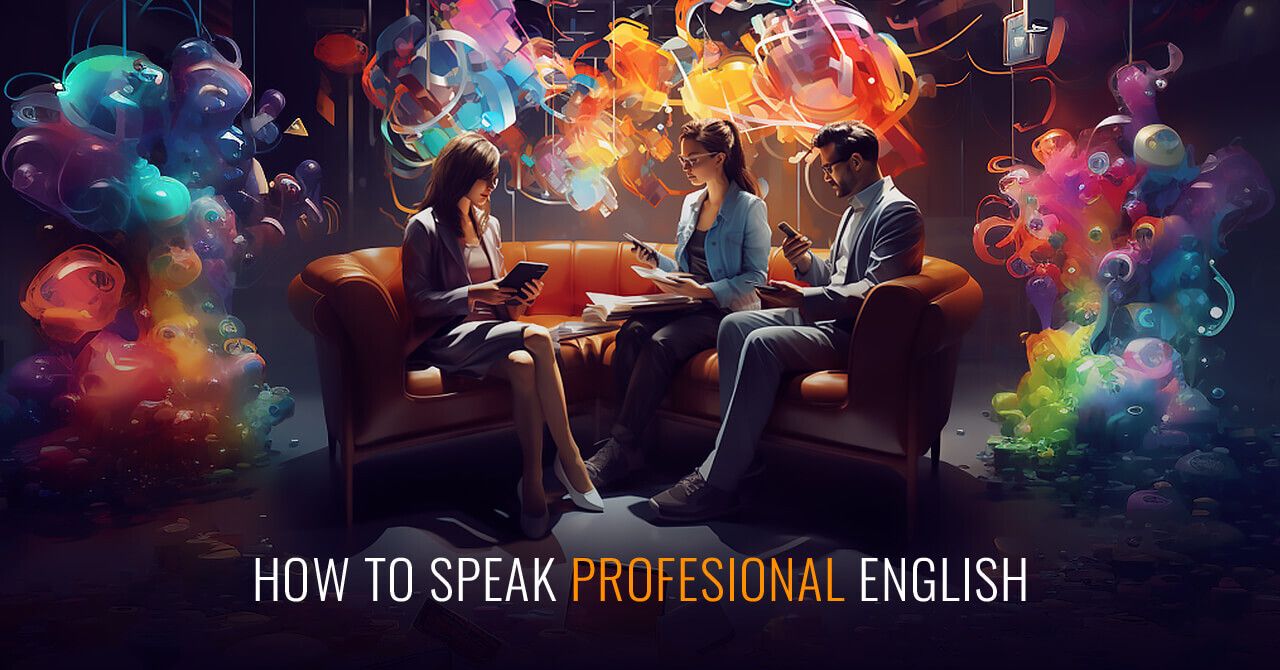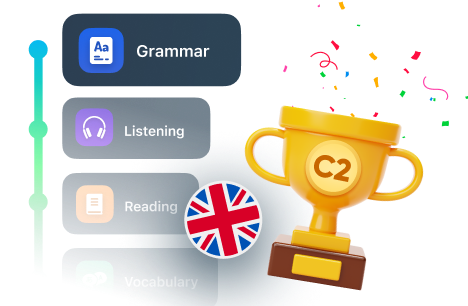
Mastering How to Speak Professional English
Mastering professional English, like any language, demands dedication and unwavering effort.
The allure of the English language is ever-growing, whether for travel, work, or migration. Nowadays, it seems that everyone should speak English at some level. The trend of learning English has been ongoing for the past two decades and continues to grow, fueled by various motivations. The question remains: How long before I become fluent in English? How can I learn to speak professional English?
While this query is universal, responses differ. No magical elixir exists, and there is no definitive timeline for mastering professional English. Insights exist for different proficiency levels—from basics like A1 to advanced tiers. Some conquer A1 in weeks, others in months. Factors like time commitment, instruction quality, linguistic background, and support influence success in language acquisition. Start your journey towards mastering professional English by taking dedicated English classes and embracing the path to speaking the language fluently and professionally.
How long does it take to learn professional English?
Mastering professional English, like any language, demands dedication and unwavering effort. Although the motivation is the same, they all have one thing in common in this case. Absolutely, professional English is indispensable for business endeavors, entrepreneurship, and workplaces where English is the lingua franca. You also need it for written communication, such as writing e-mails, for example.
You will not address your friend in the same way as you would your business manager. It is one of the motivations that everyone shares in common.
In this guide, we provide an overview of the expected timeframes for achieving different levels of proficiency in the English language:
A level: basic proficiency
- Weekly commitment: 8-10 hours
- Three-month total: approximately 120-150 hours
For beginners aspiring to reach A1 proficiency in professional English, containing fundamental comprehension and communication, it typically involves 120-150 hours of learning.
B level: intermediate proficiency
- Weekly commitment: 10-15 hours
- Three-month total: around 180-270 hours
Many language learners target the B1 level, representing a robust intermediate English proficiency. Generally, it entails 180-270 hours of learning. These hours are dedicated to studying, not teacher interactions. To reach B1 in 1-2 months, invest 12+ hours daily in learning English.
C level: advanced proficiency
- Weekly commitment: 15-20 hours
- Three-month total: approximately 270-360 hours
- Note: you need solid B1 to be able to “jump” to C1 in this timeframe.
Total time investment for three levels
- Estimated hours: 570-780 hours
- Time frame: three months per level
Individual progress may vary based on learning styles, prior language experience, and study methods.
Key takeaway:
- Consistent effort and dedication are vital for progressing through each level.
- These estimates provide a general guideline; actual time may differ based on individual factors.
- Gradual and continuous learning is the key to mastering professional English across different proficiency tiers.
Boost your professional English:
B1 level: Estimated at 180-270 hours, requiring 3-4 hours daily of 10-15 hours weekly.
C1 level: Typically takes around 570-780 hours of dedicated learning. Requires a minimum of 3 months to attain.
Don’t know your English level? Spend 5 minutes to find out with this free test
Online resources to learn professional business English
Finding the right school or course makes a huge difference. Avoid boring teachers—they can make learning feel tough. It’s best to pick a course with teachers who get where you’re coming from. A great teacher will fire up your excitement and set you up to ace English, even after your lessons are over.
Looking for lessons made just for you? Check out LiveXP. Personalized language lessons are offered there, and LiveXP teachers are all about helping you reach your goals. This online platform lets you learn at your own speed from home. Beginner or expert, LiveXP has you covered. Tutors adapt lessons to your style, ensuring you grasp the language effectively. Want to speak English confidently? Join LiveXP and discover all you can do.
Should you take a course or study on your own? Most people choose a course to learn faster. Having an expert teacher is especially great for beginners. In 1-on-1 lessons, all teacher’s attention is focused on the single student. That’s why private tutoring can be the best way to cover all English skills and gain professionalism. Private English lessons from anywhere in the world are what LiveXP offers you.
How to speak professionally
If you decide to level up your English to a pro level, you need professional English classes to succeed. On LiveXP, you can find an experienced tutor for business English. You can read about tutors’ backgrounds in their profile descriptions to see if they have qualifications like CELTA, TESOL, or TEFL. A good tutor should be able to provide or recommend quality resources for business English, such as textbooks, online resources, and real-world materials like reports and presentations.
If you work and you don’t have a lot of free time for learning, there is full flexibility on LiveXP. Find a tutor you like (or a couple of them) and book a trial lesson to see how it goes.
Professional English. What for?
1. Unlocking your job opportunities
Imagine opening a treasure chest of job opportunities. That’s what learning professional English does! Big-shot companies often need English for international deals. When you speak the language of business, you become a valuable gem that employers can’t resist.
2. Climbing the success ladder
Do you dream of climbing the success ladder? Well, here’s the secret: professional English. Even if you start at the bottom, knowing professional English gives you a boost. When it comes to getting promoted, bosses tend to take notice of employees who possess strong communication skills.
3. Turning your dreams into reality
Ever thought about working in another country? Imagine living and working in a foreign land, all because you can speak the language that businesses love. Learning professional English might sound tricky, but with the right tips, you’ll be a language wizard in no time. Get your suitcase and travel documents ready.
4. Mastering the business English language
Casual talk is one thing, but mastering business talk is like becoming a language ninja. Professional language isn’t just about words—it’s about clear communication in meetings and offices. Get ready to impress with your sharp language skills!
5. Diving into your industry
Think of your area of expertise as a secret code. Learning specific words and phrases in your field is like cracking that code. Whether it’s law, tech, or something else, becoming an industry language expert sets you apart.
In a nutshell, professional English isn’t rocket science, but it is essential for every profession. It’s a journey that takes you from casual chatter to confident business talk. So go on, future language pro, unleash your English magic, and watch the doors of opportunity swing wide open!
Differences between professional and casual English
Learning business English is like adding a shiny new layer to your language skills. Remember to hold onto the fundamental skills of reading, writing, and speaking, as they are the foundation for mastering the English language at an advanced level.
Professional English isn’t about knowing fancy words for the sake of it. It’s about speaking like a pro in the business world, whether it’s with your co-workers, boss, or clients.
And guess what? Even hellos and goodbyes get a makeover. Instead of throwing around “Hey buddy,” it’s all about using proper titles. It’s like the secret handshake of the business world. You can’t call your supervisor mate or lad or man. It can be disrespectful.
But wait, there’s more! Being an expert in professional English isn’t just about impressing folks with big words. It’s about nailing phone calls, crafting those killer reports, and owning meetings like a champ. You become the everyday office maestro!
Now, the real deal-making professional English a natural part of your world. It’s like fitting in those puzzle pieces perfectly. Whether it’s following industry news, practicing chats with friends, or just soaking in the business buzz around you, every step counts.
So, for future pros, here’s the bottom line: professional English is like unlocking a new level in your language journey. It’s not about being a language robot—it’s about using your skills to shine in the working world. So, keep those basics in your pocket, sprinkle in some business magic, and get ready to rock your career confidently!
Learn how to speak professional English fluently
1. Watch business English videos
Get ready for some fun online! There are lots of great business English videos on the internet just for learners like you. Simply search “business English videos” and see what you find. And here’s a tip: challenge yourself by watching videos meant for native speakers. Try watching the news on BBC, CNN, or the Wall Street Journal.
2. Listen to the radio
You know what’s cool? The radio is a great way to learn while you’re on the go. Listen to news or talk shows when you’re driving or doing chores. It’s a great way to hear business English and learn about what’s happening in the business world. Think of it as your English buddy who goes everywhere with you! Try BBC first!
3. Listen up!
Keep those ears sharp and ready. If you’re around English speakers or planning to be, listening is key. Focus on the words, how they sound, and even the jokes. If something confuses you, just ask. Being curious will help you get the hang of business English.
4. Mix everyday and business English
Imagine mixing everyday chat with business talk—it’s like having the best of both worlds. While learning a daily language, add some business words too. Instead of just “receipt,” say “invoice.” Instead of “shop,” say “retailer.” You’ll be handling both casual and business talk in no time!
5. Be active on social media
Platforms like LinkedIn can help you dive into business English. Comment on posts, follow companies, and chat with professionals. Social media isn’t just for fun—it can help you master English.
6. Talk to real people
Speak with experts in fields you’re interested in, attend events and network. If you’re nervous, it’s okay to tell people you’re still learning. Most will be happy to help, and soon, you’ll have a bunch of friends supporting your language journey.
These suggestions are like your roadmap to mastering business English. So, get excited, enjoy the journey, and step by step, you’ll rock the world of business English!


















